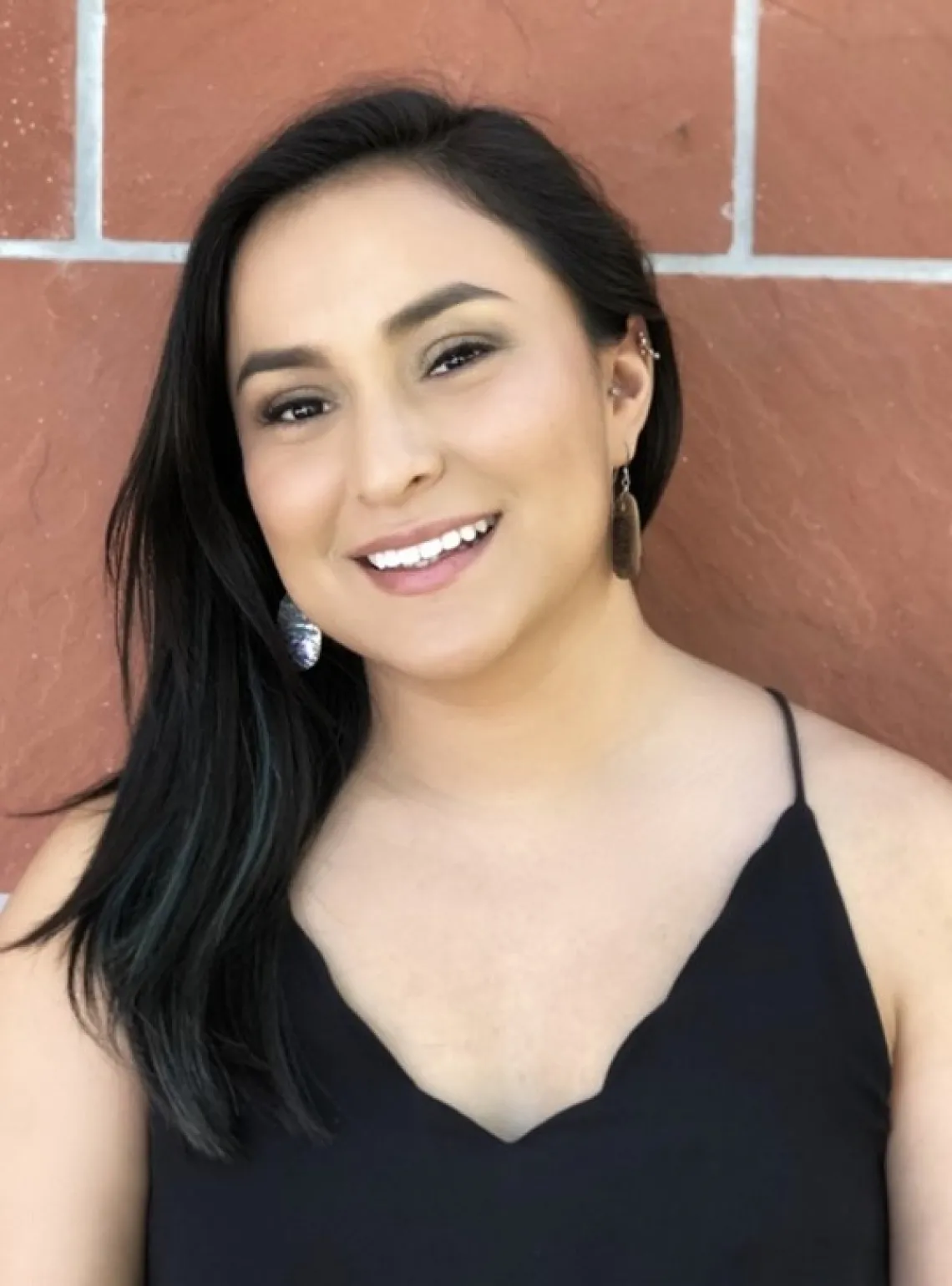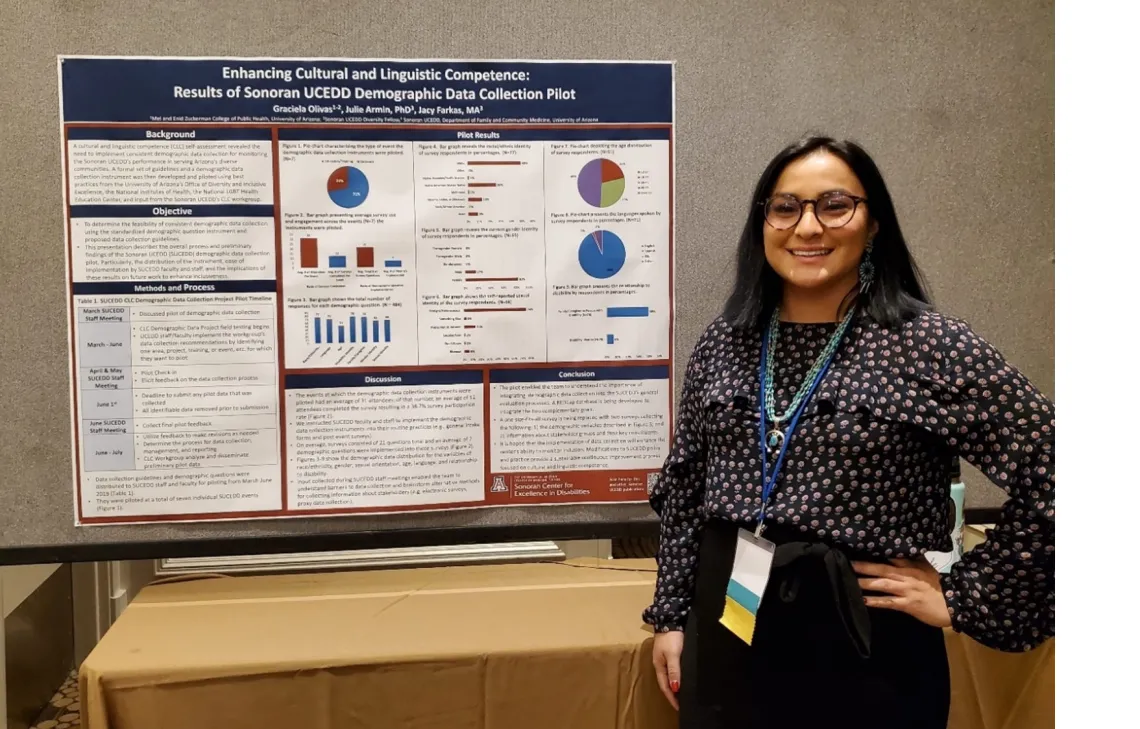The CACTI Blog: Celebrating the Intersectionality of Indigenous Peoples as a Sonoran Center Trainee

By Graciela Zonnie Bah Olivas, 2017-2019 Diversity Fellowship, 2019-2022 Undergraduate Certificate in Developmental Disabilities [written in Spring 2022]
Yá’át’ééh shí éí Graciela “Zonnie Bah” Olivas yinishyé. Hashk'ąą Hadzohí nishłi Naakai dine'é báshíshchíín Naakai dine'é ei dashinalí dóó Tsénjikíní ei daschicheii. My name is Graciela “Zonnie Bah” Olivas. I am "yucca fruit strung out in a line" clan born for the “Mexican people” clan. My paternal grandmother's clan is the “Mexican people” clan and my maternal grandfather's clan is the "cliff dwellers" people clan.
This is my introduction in my Navajo (Diné) language and represents an important piece of my cultural identity as both a Navajo and Latina woman. I am a student at the University of Arizona’s Mel & Enid Zuckerman College of Public Health and a part of the Sonoran Center for Excellence in Disabilities undergraduate certificate program. As a Native student, I recognize how fortunate I am to be pursuing my education and realize the impact I can make to improve the health of my community. This is what drove me to pursue an education in public health and to gain knowledge of the field of disability, particularly because I wished to better understand what the unmet needs are for people with disabilities within AZ’s tribal communities. The U.S. Census Bureau states that 27% of Arizona’s nearly 272,000 Native American population have a disability. Additionally, 12% of Native Americans in Arizona have a disability that requires the use of medical devices such as a wheelchair, cane or crutches.
Much like how my Native American heritage and culture influences my own identity, the lived experiences of tribal members who have a disability are also impacted by their own set of unique intersecting identities that require culturally relevant support specific to their needs. My work as a certificate student emphasized this, as my research project focused on developing a tool and process to collect social identity and language data from stakeholders that could be used to consistently collect and analyze demographic data. Collecting information about language, culture, and racial/ethnic background is necessary in order to address the different aspects of one’s identity and ultimately ensure Sonoran Center services cater to the needs of representative populations in Arizona. I had the opportunity to present a poster related to the project, Enhancing Cultural and Linguistic Competence: Results of Sonoran UCEDD Demographic Data Collection Pilot, at the 2019 annual conference of the Association of University Centers on Disabilities (pictured below).

I’ve been a Sonoran Center trainee for several years now and have always felt validated as a Native woman by the amount of work and effort the Center puts into meeting the needs of Southern Arizona tribal members who have a disability. Therefore, in my last semester as a trainee (May 2022), I feel I have seen this representation come full circle with the establishment of the Native Center for Disabilities administered by the Sonoran Center. I’ve engaged in countless conversations around the importance of diversity and inclusion and celebrating intersectional identities, so it’s reaffirming to see the launch of a Center for Disabilities that honors the unique culture and experiences of my Native peoples.
The CACTI Blog features the voices of our interdisciplinary trainees and Community Advisory Council members as they highlight diverse images of people with disabilities and provide community information and advocacy on disability issues. Check Out The CACTI Blog
